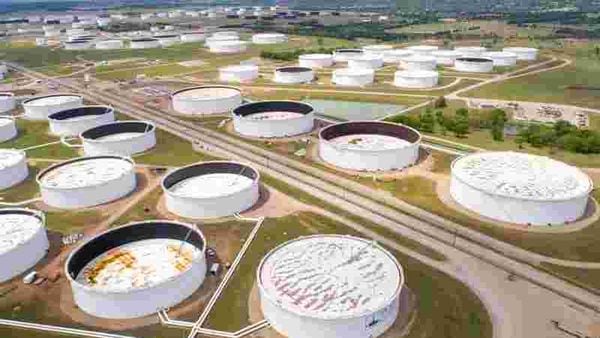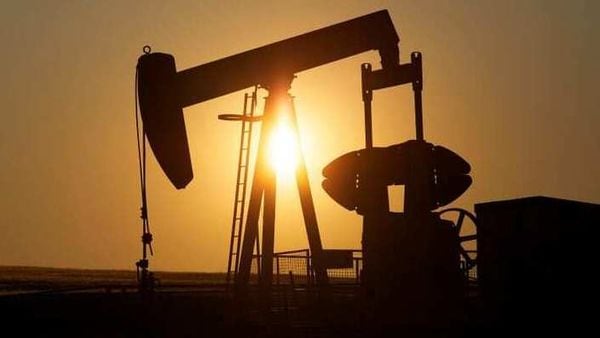End game for oil? OPEC prepares for an age of dwindling


The coronavirus crisis may have triggered the long-anticipated tipping point in oil demand and it is focusing minds in OPEC.
The pandemic drove down daily crude consumption by as much as a third earlier this year, at a time when the rise of electric vehicles and a shift to renewable energy sources were already prompting downward revisions in forecasts for long-term oil demand.
Also check these Vehicles
It has prompted some officials in the Organization of the Petroleum Exporting Countries, oil's most powerful proponent since it was founded 60 years ago, to ask whether this year's dramatic demand destruction heralds a permanent shift and how best to manage supplies if the age of oil is drawing to a close.
"People are waking up to a new reality and trying to work their heads around it all," an industry source close to OPEC told Reuters, adding the "possibility exists in the minds of all the key players" that consumption might never fully recover.
Also Read : OPEC+ confident of reviving supply without hurting prices
Reuters interviewed seven current and former officials or other sources involved in OPEC, most of whom asked not to be named. They said this year's crisis that sent oil below $16 a barrel had prompted OPEC and its 13 members to question long-held views on the demand growth outlook.
Just 12 years ago, OPEC states were flush with cash when oil peaked above $145 a barrel as demand surged.
Now it faces a dramatic adjustment if consumption starts a permanent decline. The group will need to manage even more closely its cooperation with other producers, such as Russia, to maximise falling revenues and will have to work to ensure relations inside the group are not frayed by any fratricidal dash to defend market share in a shrinking businesses.
"OPEC's job will be harder in the future because of lower demand and rising non-OPEC production," said Hasan Qabazard, OPEC's head of research from 2006 to 2013 whose work now includes advising hedge funds and investment banks on OPEC policy.
One official, who works in energy studies in the oil ministry of a major OPEC member, said shocks to oil demand had in the past led to permanent changes in consumer behaviour. He said this time was unlikely to be different.
Also Read : Oil retreats from four-month high after OPEC+ confirms taper
"The demand does not return to pre-crisis levels or it takes time for this to happen," he said. "The main concern is that oil demand will peak in the next few years due to rapid technological advances, especially in car batteries."


In 2019, the world consumed 99.7 million barrels per day (bpd) - and OPEC was forecasting a rise to 101 million bpd in 2020.
But global lockdowns this year that grounded planes and took traffic off the streets, prompted OPEC to slash the 2020 figure to 91 million bpd, with 2021 demand still seen below 2019 levels.
PREDICTING THE PEAK
Producing nations, energy analysts and oil companies have long tried to work out when the world would reach "peak oil", the point after which consumption starts permanently falling. But demand has climbed steadily each year, with occasional exceptions amid economic downturns.
Nevertheless, OPEC has been scaling back expectations. In 2007, it forecast world demand would hit 118 million bpd in 2030. By last year, its 2030 forecast had dropped to 108.3 million bpd. Its November report is expected to show another downward revision, one OPEC source says.
Also Read : Crude posts best quarter since 1990 after historic price crash
OPEC officials declined to comment on its demand outlook or policy for this article. But officials have said history shows OPEC's ability to adapt to changes in the market.
Consumption forecasts vary outside OPEC. Oil companies have cut long-term crude price outlooks as demand prospects fade - slashing the value of their assets as a result.
Global consultancy DNV GL believes demand probably peaked in 2019.
Oil's percentage share of the global energy mix has steadily fallen in recent decades, from about 40% of energy used in 1994 to 33% in 2019, even as volumes consumed rose with more cars on the roads, rising air travel and a petrochemical industry that makes ever more plastics and other products.
That may now be changing, as more electric vehicles roll out of factories and airlines struggle to recover from the pandemic. The International Air Transport Association (IATA) does not expect air travel to reach 2019 levels until 2023 - at the earliest.
Also Read : India signs MoU to develop strategic petroleum reserve in the US
"Once aviation recovers by end-2023, demand will go back to normal -- aside from the competition from other sources of energy," said a second OPEC official involved in forecasting, highlighting the difficulty of making predictions amid a global trend towards using more renewables and other fuels.
It leaves OPEC with a mounting challenge. Most members of the group, which sits on 80% of the world's proven oil reserves, rely heavily on crude. Oil prices, now hovering above $40, are still well below the level most governments need to balance their budgets, including Saudi Arabia, OPEC's de facto leader.
NEW STRESSES


OPEC, whose output accounts for about a third of world supplies, is no stranger to crises. It has managed supply shocks during Gulf conflicts in the 1980s, 1990s and 2000s and found ways to cope when rival non-OPEC producers turn on the taps, like the US shale oil industry in the past decade.
Most recently, when the coronavirus crisis pummelled demand, OPEC with Russia and other allies, a grouping known as OPEC+, agreed record output cuts of 9.7 million bpd, the equivalent of 10% of global supplies. Those deep cuts run to the end of July.
Yet, what comes next promises to be a new test of OPEC's mettle. Instead of dealing with one-off shocks, OPEC must learn to live with long-term decline.
"This trend will put a stress on the cooperation between OPEC members, as well as between OPEC andRussia, aseach strives to maintain its market share," said Chakib Khelil, Algeria's oil minister for a decade and twice OPEC's president.
Some short-term challenges may come from within OPEC, as Iran and Venezuela, both hit by US sanctions, seek to boost production or as output recovers in conflict-stricken Libya.
Others may come from outside, as the group tries to prevent US shale production taking market share while OPEC seeks to curtail output in its efforts to support prices.
"Many challenges are ahead, and we have to adapt," said one OPEC delegate, who said the group's handling of past crises proved it was able to respond.
OPEC's former research head, Qabazard, said the group might have a little more time to adjust before demand peaked. But he said the deadline for OPEC to adapt was approaching.
"I don't think it will go higher than 110 million barrels per day by the 2040s," he said, adding that fallout from the Covid-19 pandemic had changed consumer habits for good.
"This is permanent demand destruction."








 40 kWh
40 kWh 150 Km
150 Km



 998 cc
998 cc Petrol
Petrol











